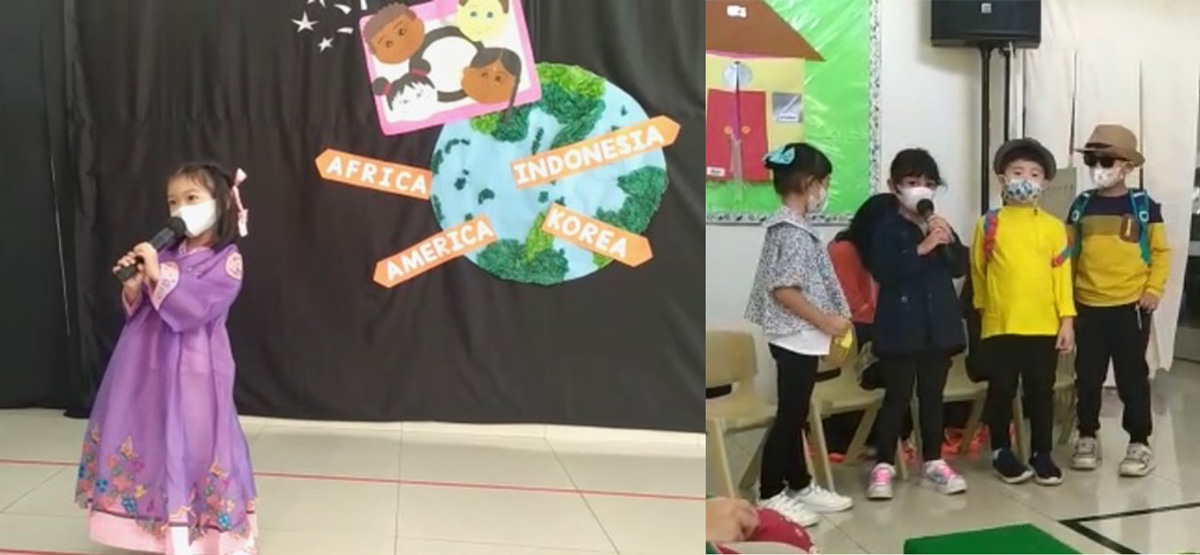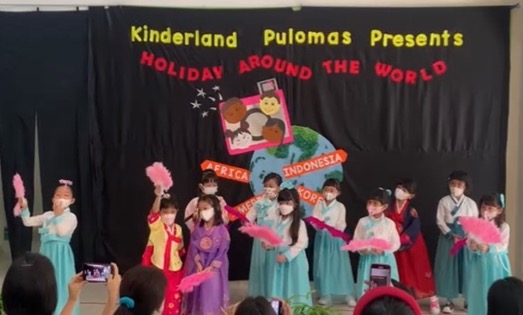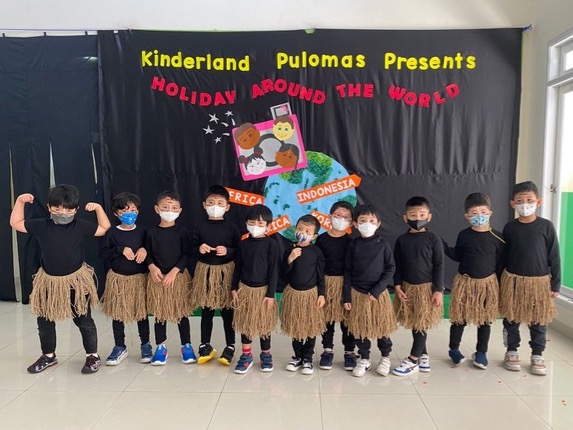Culture is a fundamental part of our identity and shapes who we are. Hence in early childhood education, acknowledging and celebrating cultural diversity is important. It inspires children to not only accept differences but to respect and celebrate them.
In celebration of United Nations Day, Kinderland Preschool @ Pulo Mas honoured this very day with a special celebration. The celebration this year was extra special. It is the first offline concert in more than two years since the pandemic started.
Our Kindergarten Two children performed short skits about different countries in different languages. They spoke about costumes, food and cultures to share their knowledge with their friends.

K2 children presenting a skit about travelling around the world
Children also dressed up and performed various cultural dances from India, Hawaii, Africa, South Korea, Spain and Indonesia. Children learned that different dance forms portrayed different meanings according to their culture. For example, Korean fan dancers use peony-coloured fans to represent and mimic the movement of flowers, butterflies and waves. The African Kassa dancers utilize polyrhythm and total body articulation to motivate the farmers when they are harvesting food and crops.

Kinderland Pulo Mas Korean dancers forming a butterfly formation

Our Young Kassa Dancers from Kinderland Pulo Mas
Learning to dance provides our children with rich opportunities for cognitive development. Children learn to comprehend different instructions, follow different musical tempos, and coordinate various body parts to form dance steps. Children also practised their memory skills by memorizing dance moves. Pre-Nursery children learned to coordinate two to four dance steps, while Nursery children were given four to six different dance steps. The kindergarteners were challenged to coordinate six to eight different dance steps.
Most importantly, learning about other cultures develops our children’s social skills. It inspires them to understand and appreciate the differences among individuals with regards to their beliefs and practices. This early exposure will help our children to get along with others and build a strong positive view of cultural diversity.

